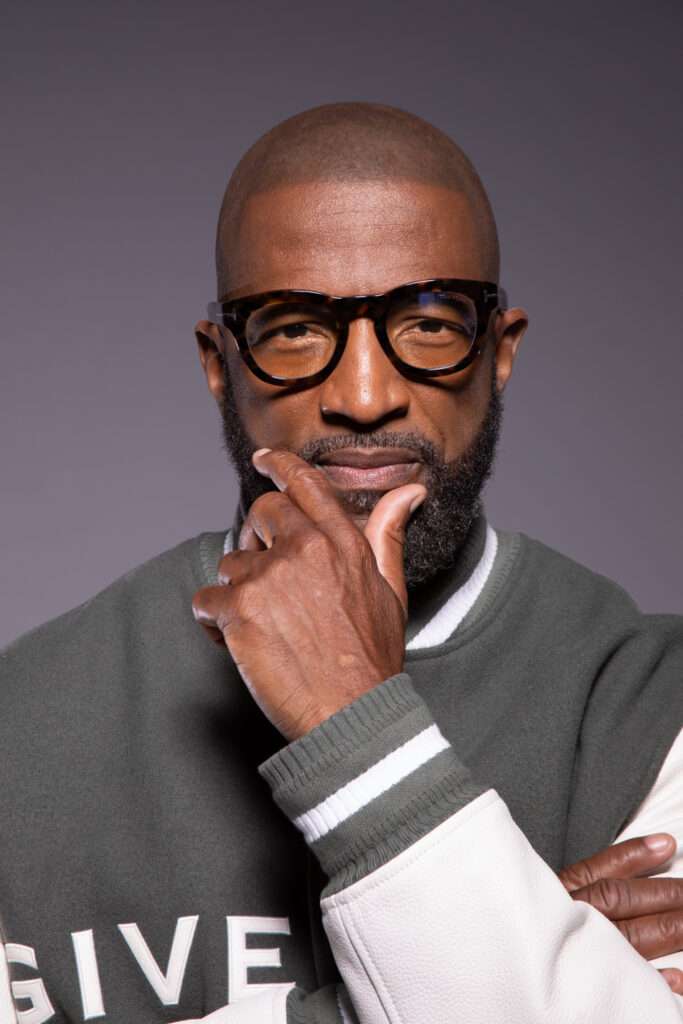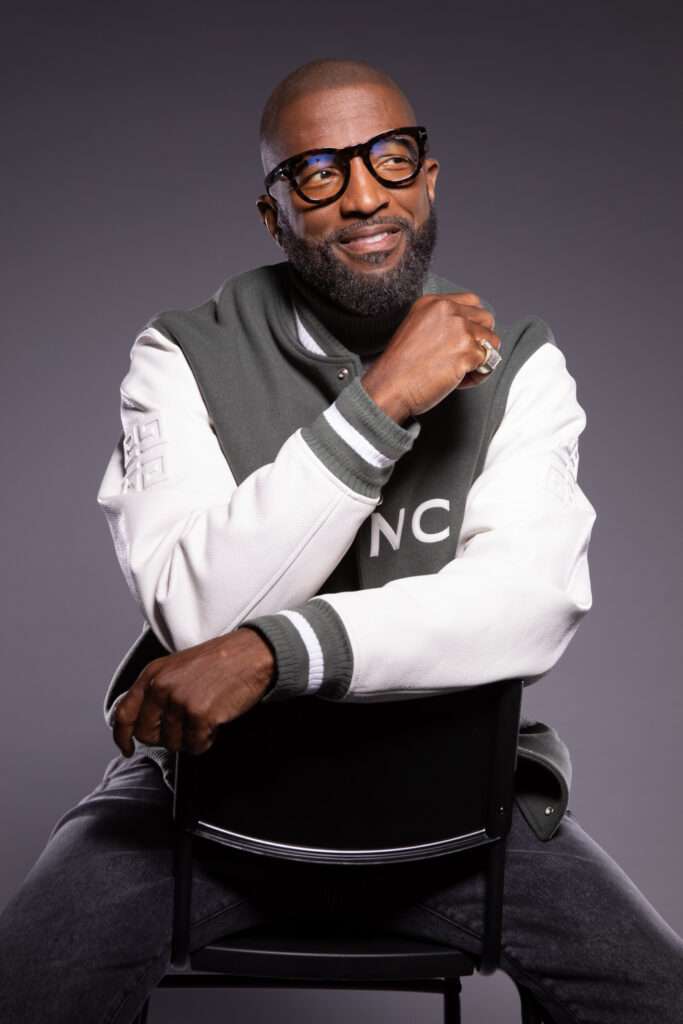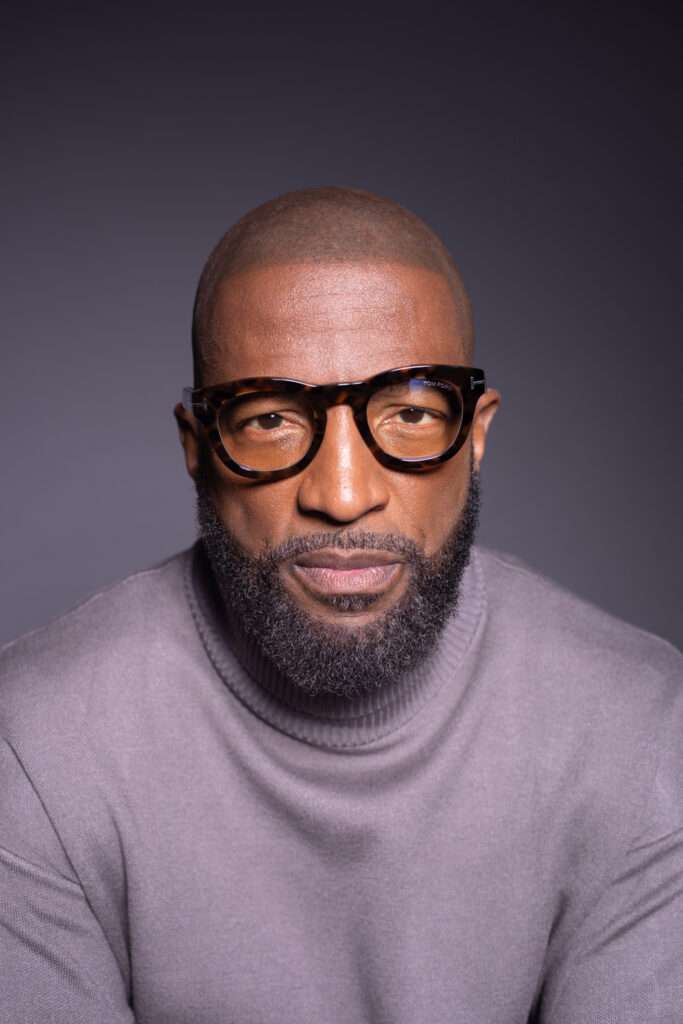Grief is a natural response to losing someone or something important. This can include the death of a loved one, the end of a significant relationship, losing a job, experiencing theft, or losing independence due to disability. These experiences can make someone feel like they are living a double life. On the outside, they may seem fine, but on the inside, they are struggling with pain, darkness, and loneliness.
No one is exempt from challenges and loss—not everyday people, not even celebrities. In a world where social media often shows perfect lives, neither money nor fame can shield anyone from life’s hardships. Award-winning comedian and syndicated radio host Rickey Smiley understands this well. His new book, Sideshow: Living with Loss and Moving Forward with Faith, which is set to release in mid-September, provides a raw and transparent look at his grief. Through this powerful read, Smiley shares his struggles, offering empathy and understanding to those also dealing with grief.
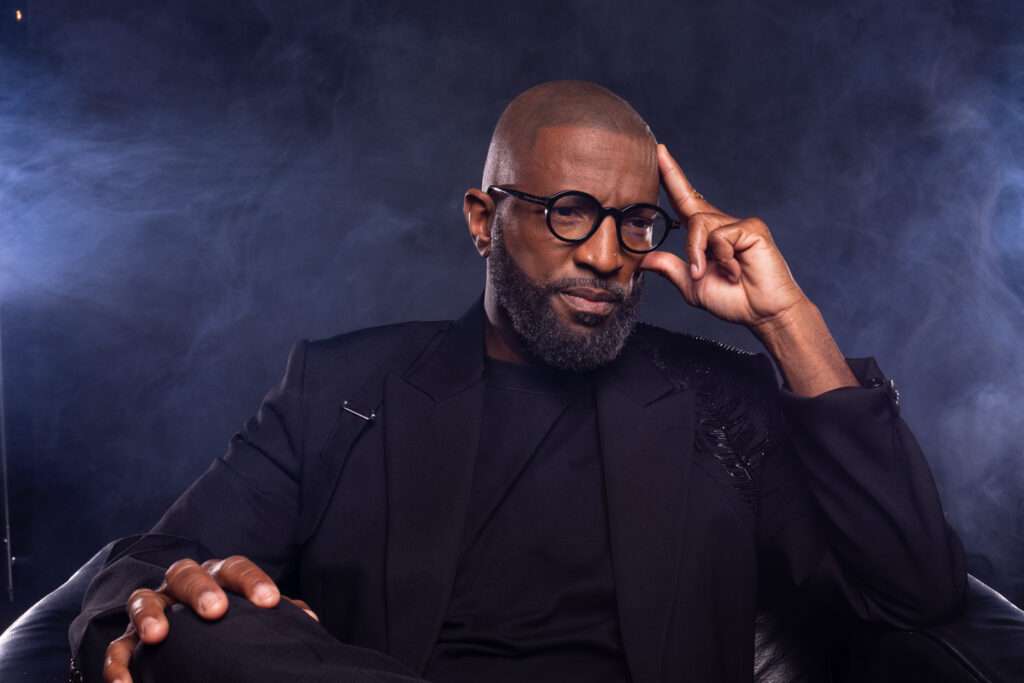
After losing his son Brandon last year to drug addiction and having also lost his father to the same struggle during his youth, Rickey is left weary and deeply wounded. Despite being the man who often brings smiles to our faces, he finds it difficult to smile himself, living a concealed double life of grief.
“I came up with the title of the book inspired by the song ‘Sideshow’ by Blue Magic,” Smiley explained. “My job is to entertain and make people laugh while I’m dealing with grief internally. There are all these acts going on. There’s the comedian and radio host that everyone sees, but there’s another show, the sideshow, that remains hidden. I know many comedians who have faced unspeakable challenges and struggles but continue to work through the pain. It’s not easy to maneuver grief in the public eye. Despite the pain, the show must go on.”
Through this book, Smiley invites fans into his life, sharing that he’s still on his healing journey. Like many, he’s learning to find peace and balance the good with the grief, and past joys with present heartache. The path isn’t smooth, but he’s moving forward and invites us along. In his story, Smiley shows how he deals with trauma, embraces therapy, and leans on his faith and scripture for strength. It’s a story of resilience, self-discovery, and growth.
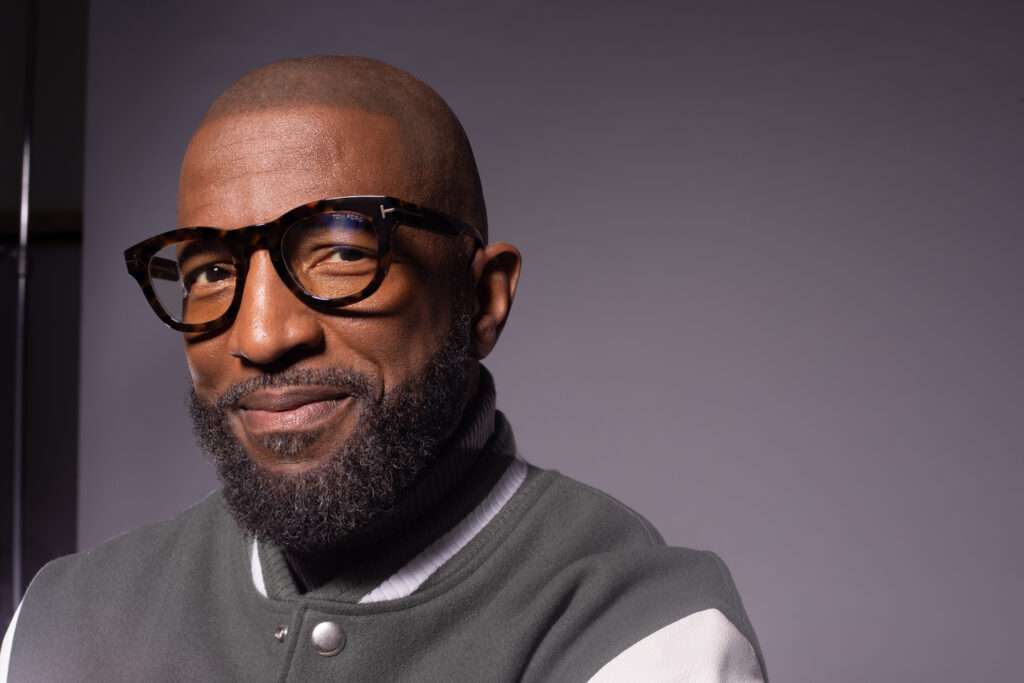
How can you cope when someone you love is struggling with addiction? How do you deal with the grief of losing them, especially if your daily job is to make people laugh? Smiley has faced these tough questions for years. Death is often a topic we try to avoid, but Smiley addresses it head-on in this read. He wants readers to know that he experiences pain too. While this pain can be overwhelming and uncontrollable, Smiley finds strength in his faith in God, who helps him stay grounded.
Our community is starting to see the benefits of therapy and counseling. However, mental health issues are still often viewed as a sign of weakness by some in the community. This creates a stigma around mental health, leading to shame and fear of discrimination. Because of this, many people hesitate to talk about their mental health and might avoid seeking the care they need. Raising awareness and reducing stigma can help our community overcome these barriers and support each other better.
Smiley is challenging the stigma around mental health by sharing his personal story and offering support to readers and fans who feel unseen and alone. He aims to help those dealing with grief by showing how to gain strength, manage pain, and move forward. By inviting therapy and relying on God’s strength, Smiley finds peace one day at a time.
Dawn Paul, a.k.a. The Dr. Dawn, had the opportunity to talk with Smiley about his new book, where he discusses his mental health support, coping with grief, and finding peace.
Q&A With Rickey Smiley
Being a comedian, how challenging is it for you to make people laugh when you’re coping with grief? Performing while coping with grief is challenging. Sometimes, I need to step away from the mic during my radio show to take a break. I remember breaking down in tears in the car before a performance at Harrah’s Casino. The driver kept driving but was uneasy. When I arrived, I wiped my tears and performed for a sold-out show. It’s tough to make people laugh when I’m dealing with my pain, but I do it for them. They come to escape their troubles and have a good time. Ironically, when I’m performing on stage and when I look out into the audience, I can sense when someone has lost a child or is experiencing grief. I recall one show where I felt a deep sadness from a couple in the crowd. After the show, they shook my hand and shared that they had recently buried their child.
Facing the challenge of losing both your father and son to addiction, did you feel you were destined for the same path? My grandfather played a pivotal role in my life. A military man, he would talk to me daily about the dangers of drugs and alcohol. I tried to impart the same wisdom to my son, but his rebellion led him down a dark road he couldn’t escape. I never imagined I’d face the same heartache my grandfather did—burying a son. I often wish my grandfather were here to share how he found the resilience to live into his 90s, despite such a major loss.
When did you know it was time for you to lean into therapy? Since my son passed away, I’ve been going to therapy. I even have a therapist come on my radio show. Many people don’t realize that grief doesn’t end when the funeral does. The cards and calls may stop, but the pain remains. I’ve had many lonely days at home, feeling isolated. Sometimes, even while on stage, I’ve felt like I could just break down. These moments of anxiety are tough. Adding to my grief, I haven’t seen my granddaughter since my son passed. I have a court date coming up because of this. Dealing with my son’s death and fighting to see my granddaughter has been incredibly tough. That’s why therapy is so necessary.
When did you know you needed to invite God into your weariness and weakness? The instant I received the call about my son’s passing, it was God’s strength that enabled me to get on a plane and fly down to bury him. I realize I need God now more than ever—not only to cope with my grief but also to support and encourage my family. It’s an incredibly hard path to walk, which is why I turn to God for constant help. One of my favorite scriptures in this season is Philippians 4:7, which speaks about peace.
Promoting your book while dealing with the grief of losing your father and son can be tough, especially with constant interviews. How will you maintain your peace and mental health? Therapy will be crucial for me. It’s essential to continue therapy to help myself. Sometimes, talking about my grief during interviews helps, like releasing steam from a pressure cooker—without that release, I’d get sick.
Our community is beginning to recognize the value of therapy and counseling. Do you hope this book will continue to help break the stigma surrounding these services? Absolutely. It’s essential to lean on God, but we must also remember that God created therapists for a reason. After you’ve prayed and talked to God, seeking professional help is perfectly okay. God is undoubtedly a healer, a heart fixer, and a mind regulator. Yet, alongside my faith, therapy has been incredibly beneficial.
Experts advise those grieving to understand that they can’t control the process and should prepare for different stages of grief. It’s natural to feel grief when a loved one dies. Allowing yourself to grieve is important. To cope with the pain, seek support from caring people like family and friends who understand your loss, take care of your health, and seek outside help from a mental health professional if needed. In many Black communities in the U.S., the church can provide a central place of support and strength. If your grief feels overwhelming, don’t hesitate to seek professional help along with support from your faith. Remember, seeking help is a sign of strength, not weakness.
“Losing a child is incredibly hard. My son passed away on a Sunday, so Sundays are tough for me. Since I shared my story publicly last year, I’ve received many letters and emails from fans. One older lady approached me after a show and told me that even though she lost her son, laughter helped her cope in that moment. This is why I continue doing comedy and radio—it’s about more than just entertainment; it’s about helping people deal with grief and life’s challenges,” said Smiley. “My new book is dedicated to the fans. God is healing me, and I hope this book will help others start or continue their healing journeys. I pray that people read it, maybe even in their book clubs. We’re all in this together.”
Sideshow: Living with Loss and Moving Forward with Faith will be released on September 17 and is also available in audio. Pre-order now at Amazon or RickeySmiley.com.
Dawn Paul, also known as The Dr. Dawn®, is an award-winning media personality, public speaker, certified life coach, author, and entrepreneur. She has extensive experience in writing, reporting, and editing for the Black press. Dawn is a member of the Houston Association of Black Journalists (HABJ) and the National Association of Black Journalists (NABJ) and has received the Texas Southern University Bless the Mic honor and the President Joseph R. Biden Lifetime Achievement Award. Follow her on social media at @TheDrDawn.



